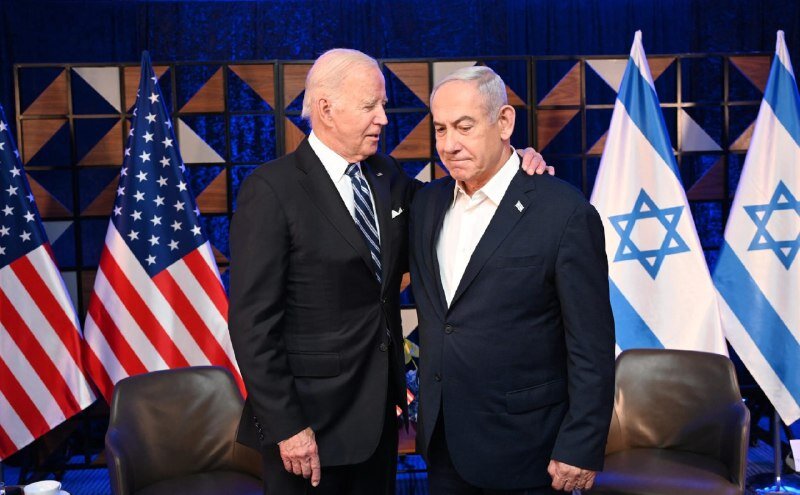U.S. wants to save Israel, not region
The meaning of America's message to Iran

TEHRAN- The U.S. has said that it is seeking to resolve West Asian problems, yet Washington is actually the root cause of the spread of violence and unrest in the region.
Hossein Akbari, the Iranian Ambassador to Syria, revealed America's proposal to solve regional problems, saying, “10 days ago, we received a message from one of the Persian Gulf countries, which sent its delegation to Iran with a message from the Americans to resolve the problem in the entire region, and not just a partial solution to the war."
According to Akbari, Americans were scared that the war would spill over to other regions, leading to the destruction of the Zionist regime.
In the message to Iran, the United States has claimed that it is seeking a solution to regional tensions. However, Washington’s actions paint a different picture. Its unwavering support for the Zionist regime, particularly since October 7, has only served to exacerbate the situation.
The U.S.'s attempt seems insincere when compared to its consistent support for Israel's aggressive actions. Its constant supply of military hardware and intelligence has enabled the Zionist regime to maintain its oppressive grip on the Palestinian people, further fueling the flames of resentment.
The U.S.'s actions have also spawned new resistance fronts.
Instead of addressing the root causes of the conflict, the U.S. seeks to view the resistance fronts as obstacles to regional peace. This misguided approach is akin to treating the symptoms of a disease without addressing the underlying pathology.
The U.S. needs to see that the resistance movements are born from the deep-seated suffering of the oppressed.
Resistance groups consistently assert that their actions are a direct response to Israel's transgressions in Gaza and the unwavering support from the White House for the Zionist regime's offenses.
The narrative propagated by these groups underscores a deeply rooted belief that their activities are a form of counteraction against Israeli barbarities in the Gaza Strip, coupled with unequivocal backing from the highest echelons of the U.S. government to Tel Aviv.
The United States' combined financial and political support for Israel has created a more complicated situation in the region, eliciting a more robust response from resistance groups.
In a stark demonstration of its commitment to the Israeli regime, the United States has twice vetoed resolutions at the UN Security Council that demanded Israel to stop war on the Gaza Strip.
Also, the U.S.'s attempt to resolve the conflict through Iran, considering it as the sole mediator of the resistance groups, is a flawed strategy. It disregards the independence of these groups and their fundamental right to self-determination.
Another flawed assumption underlying America's approach is the belief that the relationship between Iran and the resistance groups is a hierarchical one, with Iran acting as the sole decision-maker. However, the connection between Iran and the resistance groups is not one of dominance but of solidarity and shared purpose, with both sides committed to upholding the principles of justice and freedom.
At the heart of the regional complexities lies Palestine's enduring and unresolved matter, which has persisted for over 75 years. The protracted nature of this issue underscores its significance, as the region grapples with multifaceted challenges.
It is evident that until the rightful aspirations of the Palestinian people are acknowledged and addressed, the United States cannot contribute to resolving the regional crisis by assigning blame to others.
The attainment of a more tranquil regional landscape hinges on a pivotal shift in the U.S. stance —one that refrains from endorsing Israel's transgressions in Gaza and unequivocally recognizes the legitimate rights of the Palestinian people.
Leave a Comment